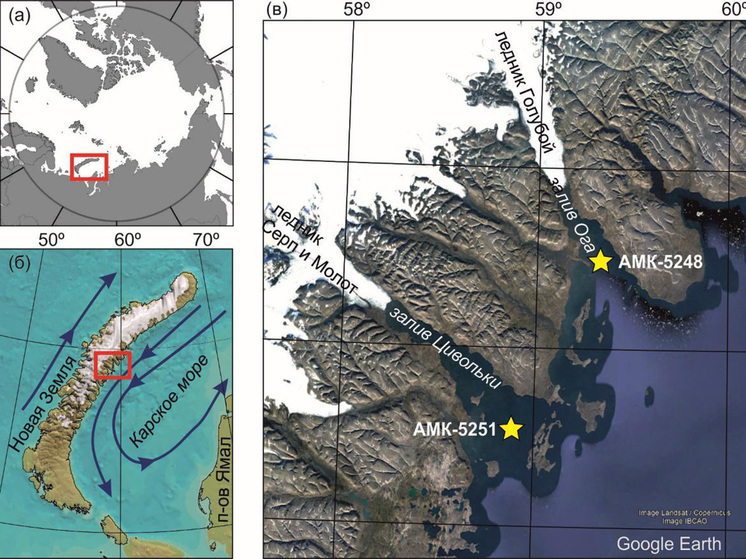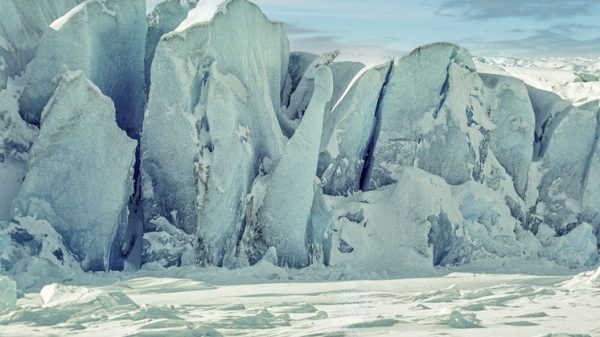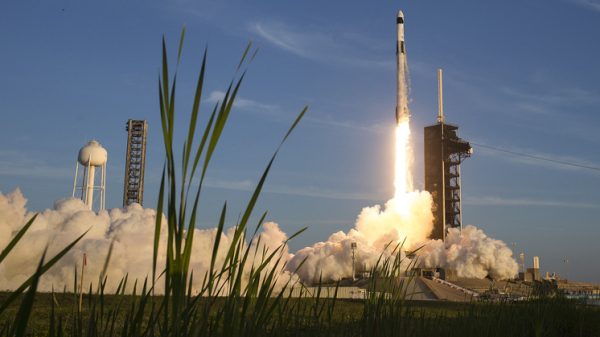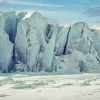Geochemists examined rock samples from the bottom of the Kara Sea
Russian scientists confirmed the acceleration of glacier melting over the last thousand years by examining sedimentary rocks in the Kara Sea. The changing bedrock under the glacier on Novaya Zemlya against the background of thousands of years of history was studied by specialists from the Institute of Geochemistry and Analytical Chemistry named after. IN AND. Vernadsky together with the Institute of Geology and Geochemistry of the Ural Branch of the Russian Academy of Sciences.
 The figure shows the areas where scientists took samples of sedimentary rocks. Photo: Geochim Institute
The figure shows the areas where scientists took samples of sedimentary rocks. Photo: Geochim Institute
Once upon a time, a warm sea splashed in what is now the Arctic. Over time, its bottom rose, forming the islands of Novaya Zemlya, and after thousands of years they turned into an Arctic ice archipelago. Currently, the melting glacier is gradually sliding into the Kara Sea, exposing vast areas and leaving behind impressive depressions and fjord basins. They transport silt, sand, gravel and boulders up to several hundred kilometers from their places of origin.
As reported by MK at the Ministry of Education and Science, these sediments interested researchers, who decided to check how their chemical composition changed over time, as well as the isotopes of strontium (Sr), neodymium (Nd) and lead (Pb) present.
To take samples of sedimentary rocks, a heavy box was lowered from the ship, which, under its own weight, like an anchor, fell into the rocks at a depth of about 20-25 meters. Later, columns with samples were brought to the institute, dried, ground, and did layer-by-layer chemical and isotopic analysis.
Scientists conducted a comprehensive study of sediments from two bays of the Kara Sea and proved that over the last thousand years the rate of glacier melting has increased 10 times .
«Temperature fluctuations lead to an increase or decrease in ice cover, which, in turn, affects the sediments accumulating under its thickness, – explains Irina Vishnevskaya, Candidate of Geological and Mineralogical Sciences, Senior Researcher at the Laboratory of Isotope Geochemistry and Geochronology of the Geochemical Institute of the Russian Academy of Sciences. – For example, in cold times the size sediment particles decrease and the diversity of microorganisms decreases, and in warm conditions the same particles become larger and the diversity increases by biological level.»
As for the change in the isotopic composition of bottom sediments of the Kara Sea, it, despite the obvious climatic changes mentioned above, is controlled only by the change of rocks under the glacier.























































Свежие комментарии